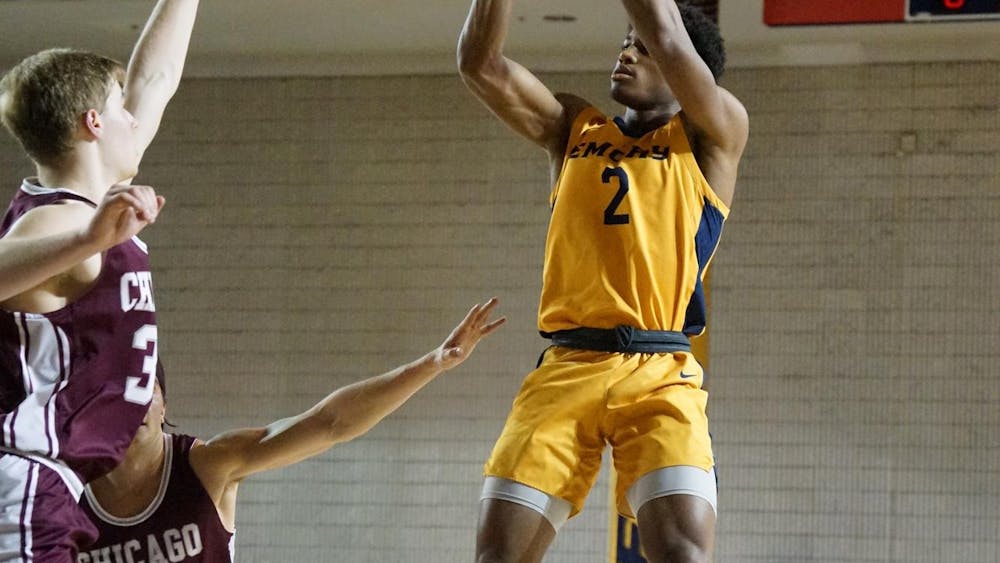Emory University admitted the final members of the Class of 2028 through the Regular Decision round on March 27.Over the four rounds of admissions, Emory accepted 5,058 of the 34,914 applicants, giving the Class of 2028 an overall acceptance rate of about 14.5% — nearly two percentage points less than the Class of 2027’s 16.2% overall acceptance rate.
The size of the accepted class also decreased by about 7.1%, compared to the 5,445 applicants admitted to the Class of 2027. The number of applications increased by about 4%.
In the Early Decision I round, the University accepted 32% of applicants to the Class of 2028. Nearly two months later in the Early Decision II round, the Emory College of Arts and Sciences (ECAS) accepted 12% of applicants while Oxford College accepted 11% of applicants. Across all application rounds, ECAS accepted 3,453 applicants while Oxford accepted 2,792 applicants, according to a University press release. Of these applicants, 1,187 received an acceptance letter for both ECAS and Oxford.

The Class of 2028 is the first cohort admitted to Emory after the U.S. Supreme Court struck down affirmative action in June 2023, effectively restricting colleges’ use of race as a factor in admissions. This decision bars Emory from releasing data about the “makeup” of the Class of 2028 until the University’s admissions process, which continues throughout the spring, is fully complete, according to today’s press release. The University plans to release the data later this year.
In total, 15.7% of students admitted to the Class of 2028 are first-generation students for a four-year college or university. The admitted class includes students from all 50 states and 110 different countries, as well as 339 students who participated in the QuestBridge National College Match program. Of these students, 254 were admitted through Regular Decision after not initially matching with Emory through the program.
Emory allowed students to apply to the Class of 2028 without submitting test scores, marking the University’s fourth year with a test-optional policy. The Class of 2029 will also be able to apply without submitting test scores.
Latting told The Emory Wheel last month that the University is reviewing data from past admissions cycles to determine whether Emory will continue to be test-optional for the Class of 2030 and beyond. He expects to have a decision within the year. This comes after schools such as Dartmouth College (N.H.) and Yale University (Conn.) announced that they will require applicants to submit test scores.
University President Gregory Fenves said in the press release that he is “thrilled” to have “outstanding” students join the Emory community next year.
“As the Class of 2028 embarks on their college journey here, they will find an innovative academic experience uniquely tailored to their goals, eminent faculty dedicated to mentoring them and a community deeply vested in supporting them,” Fenves said. “We are eager to welcome our newest Eagles and empower them to learn, grow and flourish.”
Correction (3/30/2024 at 9:33 p.m.): A previous version of this article incorrectly stated that the Class of 2027 had an overall acceptance rate of 10.3%, making the Class of 2028's 14.5% overall acceptance rate more than four percentage points higher. In fact, the Class of 2027 had a 10.3% acceptance rate for the Emory College of Arts and Sciences and an overall acceptance rate of 16.2%. Therefore, the overall acceptance rate actually dropped by nearly two percentage points with the Class of 2028. The article also incorrectly stated that the size of the accepted class increased by about 47.5% and the number of applicants increased by 5%. In fact, the size of the accepted class decreased by about 7.1% and the number of applicants increased by 4%.

Madi Olivier (she/her) (25C) is from Highland Village, Texas, and is majoring in psychology and minoring in rhetoric, writing and information design. Outside of the Wheel, she is involved in psychology research, the Emory Brain Exercise Initiative and the Trevor Project. In her free time, you can find her trying not to fall while bouldering and obsessively listening to Hozier with her cat.

Spencer Friedland (26C) is the Editor-in-Chief of The Emory Wheel. He is double majoring in Philosophy and Film. Outside of the Wheel he is a member of Emory's Honor Council and Franklin Fellowship. After college he is planning on attending law school.







